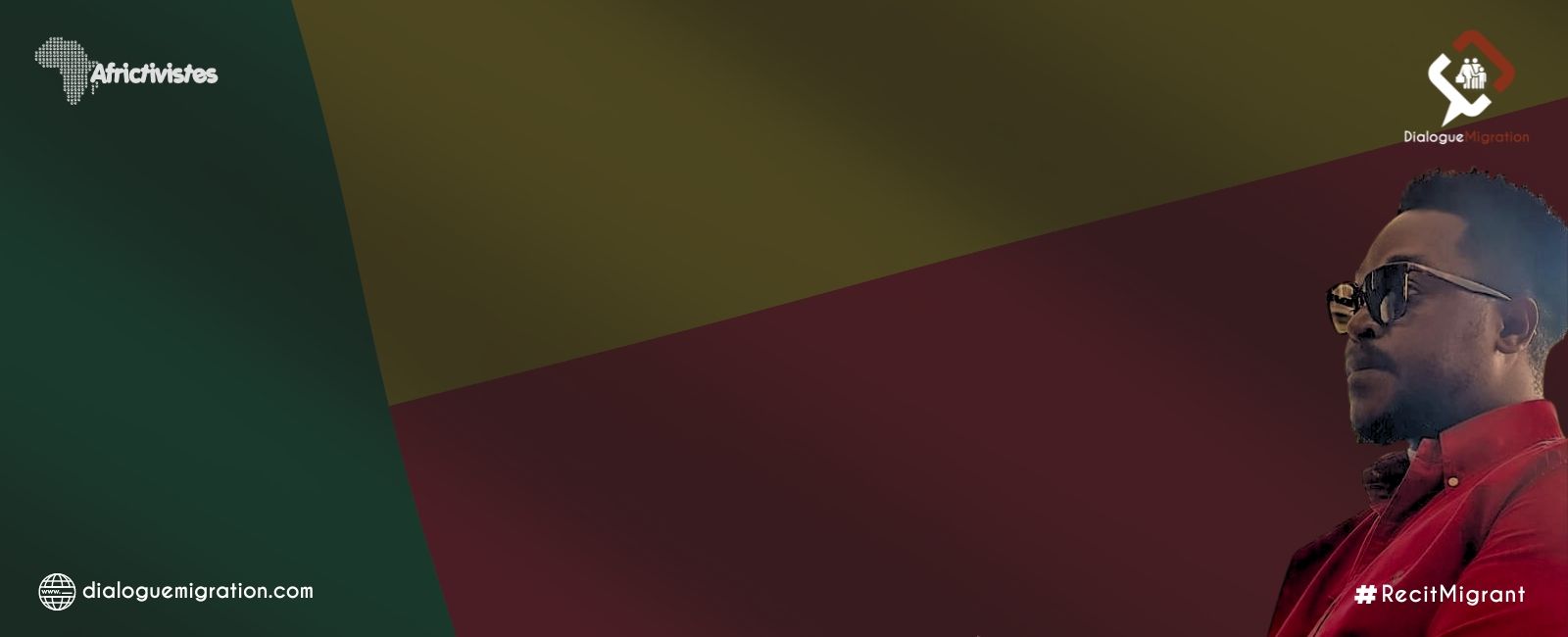

In Benin, a phenomenon is increasingly attracting more and more attention and creating controversy. The announcement of the departure of reputable young people, artists and musicians, from the country to other destinations to pursue other opportunities is going viral and is making the headlines in the media and the topic of heated discussions on social networks.
Dialogue Migration speaks about the phenomenon with the Beninese urban music artist D.A.C (DIECI), officially known as Armel Adossou, producer, director, but also CEO of the content creation agency and a production company called “GOODFRAMES”. This actor of the musical universe who left Benin for France where he studied and worked before returning in 2017, touches on certain realities that are unknown to many.
Thanks to your profession, and your career, you meet and work with many artists, whether Beninese or from the sub-region who travel the world. After your return to Benin, what would you say if you were asked to talk about the mobility of artists?
I think we should not freeze immigration to one or two categories. I think there are many reasons why people move and travel. At first, we leave to seek the best. Therefore, we think we will have better elsewhere. In addition, there are issues that are a little more personal, sometimes dramatic such as wars or insecurity, which also make people move and this does not only concern people who carry out specific types of activities. There are indeed artists who are concerned. Now, if we go back more specifically to the case of artists, it is paradoxical. Why? Because we are in an era where African music, thanks to the internet, is much more popular than before. There is a strong emergence of Afro-English music with Nigeria and South Africa. But also, with the emergence of French-speaking urban music, especially Congo (DRC), with Fally Ipupa for example and all the other artists from that region. Also for Cote d’Ivoire with a return of Rap Ivoire competing with the Coupé Décalé. So we cannot say that all those who leave are seeking better visibility or success. I think that reality has stagnated a lot and that these artists’ talent has never been valued.
Naturally, when you tell people that you were an artist, be it relatives or friends, that meant you had no job at the time. They would ask you what you are doing apart from music ? Today that has changed a lot. But I think ultimately that culturally and historically this is what makes people (young, old and younger) leave for the West. Now there is reality. The luck that I may have had was by going (editor’s note abroad) and returning to be able to compare the two. I will not be able to condemn someone who leaves. I may warn them to say that all that glitters is not gold. This is the simplest sentence that could summarize this Eldorado that can be visualized while being at a distance. And it is also important to go and experience reality on the ground. I’m not demonizing Europe or the West, that’s not the goal! This means that there are good things to take and not so good things everywhere. And you’re never better than home.
Isn’t it because the arts sector is not too well organized to allow artists to make a living from their art that people think we have to leave?
(Laughter) I was talking about it. Yes, indeed! The mechanisms that existed have not worked, the current ones for example (editor’s note: in Benin) favor, I know, entrepreneurial artists. I think it’s a nice initiative to think about art as a profession. Which is in contrast to the days when you would say “I’m an artist”, you are asked “what else do you do? » Today, giving the entrepreneurial hat to artists, I think it’s very good but is it enough? No! And I think that the first steps that should have been taken are perhaps to listen to these artists and to identify their real difficulties. Because before becoming an entrepreneur, you have to have the resources. Maybe the training is needed. Perhaps the problem is wrongly addressed?
What are the networks to be set up to make the African artist an entrepreneur who can prosper in Africa or elsewhere, given that artistic spaces have no borders?
Humbly, I think that if we are to see art itself as a kind of school of knowledge, there are people who are naturally gifted. There are others who need to learn. Even those who are gifted need to learn, because you have to reinforce the knowledge that you have. If we consider art a bit like knowledge with something a little more mysterious, it remains art with something elusive and everyone is always different in the way they produce things. I will say that what you have to go through first is maybe just practice. First, because there are people who are born with a talent, but who need to be educated on how to sell that talent. The way to organize yourself to be able to sell this talent; the way to organize, to maybe automate everything is the creativity mechanism. I think it’s more about training.
How about retirement plans, given that we see online a great number of calls for donations to help artists?
Yes! I say this from experience, because money is the sinews of war. If you do music and make no money, what are you actually going to live on? Today people have fun saying “artists become more like models” or things like that because it is common to see an entrepreneur associate their image with brands. This has been an economic model for years. Nowadays, when you are an artist like me who makes the type of music that touches families, men, women, couples, even the youngest, in the audience there are children who take us in chorus. When you make this type of music, I think there are possibilities. For example, you can be associated with a family planning campaign, it’s something profitable for the artist. Apart from that, if we take the hotel where we are right now, an artist has the possibility of molding their image in such a place, if their image corresponds to it. These are business models which are completely different and which revolve around music in order to be able to generate other income. All this must be part of what the artist has to learn.


